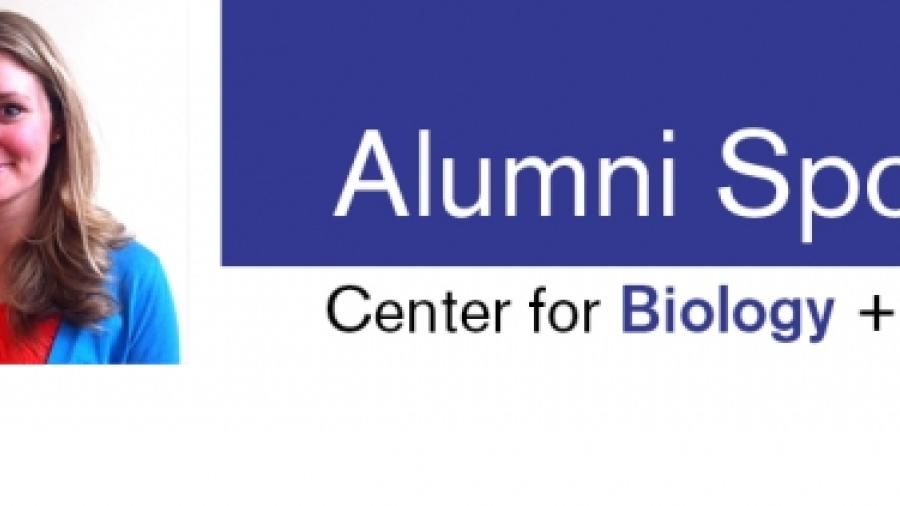
Alumni Spotlight: Maggie Paul
The Center is excited to profile a 10-year alum of the Biology and Society Master's program. Maggie Paul, PhD is an Assistant Professor of Policy and Program Evaluation in the Department of Population Health at the New York University School of Medicine. She was among the first in the 4+1 program graduating with her BS in Biology and Society in 2007 followed with an MS in Biology and Society focusing on Bioethics, Policy and Law.
How did your degree in Biology & Society impact your career? *
I came into the Biology & Society program during my sophomore year when I was certain that the pre-med track was right for me. I have always been interested in health care and the pre-med track made sense because at the time, when I thought of health, I thought only of individual-level issues. After joining the program, I took courses like History of Medicine and Bioethics and began to explore complex questions through the Research Colloquium and eventually my thesis. All of this work broadened my horizon and revealed a whole new set of possibilities in terms of areas of study. I realized that I was much more interested in learning about topics related to population health rather than individual-level health issues, and over time I was able to articulate my particular interest in the intersection of health care and social determinants of health. So I really cannot overstate the extent to which the Biology & Society program positively influenced my career because it fundamentally changed the way that I thought about my work and intellectual pursuits. The colloquium series was particularly valuable in this regard but, broadly speaking, I took many interesting and engaging courses from skilled professors who were truly excited about their research and who were dedicated to teaching and mentoring students. How great is that?! I still feel like I won the lottery but, in reality, that experience is quite common among students in this program. I was also fortunate enough to have two incredibly supportive faculty mentors who pushed me to challenge myself along the way. Together, all of this set a very high benchmark for the rest of my education and professional life, and taught me to recognize and value great mentors and colleagues. Ultimately, this path led me to my current role as a professor of policy and program evaluation. In retrospect, that shift from pre-med to a more academic track was an extremely positive turning point in my life but of course at the time it was a scary leap to make. I am certain that the mentorship and wisdom of my faculty advisors was critical to making that transition.
What do you consider to be the benefits of a degree in Biology & Society? *
As a result of the excellent coursework and mentorship, students leave this program with a leg up in terms of their ability to think critically about the world and their place in it. Students learn how to conduct meaningful research, and I think that most of us end up catching Dr. Maienschein’s “so what?!” bug. That is a very good thing and, in a way, I have made a career out of asking and answering that question. In my role as an academic researcher, my expertise is in conducting rigorous program evaluations and I am most passionate about studying those programs which aim to ameliorate health disparities. The universe of interesting questions is endless and the work of investigating and answering them well is difficult and invigorating. What is the program? Why does it matter? Why should we expect it to work? Does it work? If so, how? And where? And for whom? According to which outcomes? And, critically, what are the broader policy implications based on the answers to these questions? I could go on, but you get the point. My path to this work, which I love, began in the Biology & Society program where I learned to challenge my own ideas about my future. While there are many benefits to earning this degree, developing the ability to think differently about your own life and work may be the greatest of them all.
What advice do you have for someone seeking a degree in Biology and Society? *
The most important charge you have as a student is to discover what excites you and to focus your time and energy on that work. While that statement is cliché and may even sound easy, the journey is really important and can be difficult to begin on your own. Everything about the Biology & Society community, from the courses to the peers and mentors, facilitate the kind of intellectual exploration that will lead you toward a fulfilling career. Dig into the work and enjoy the ride!
For more information, please contact Maggie Paul at [email protected]